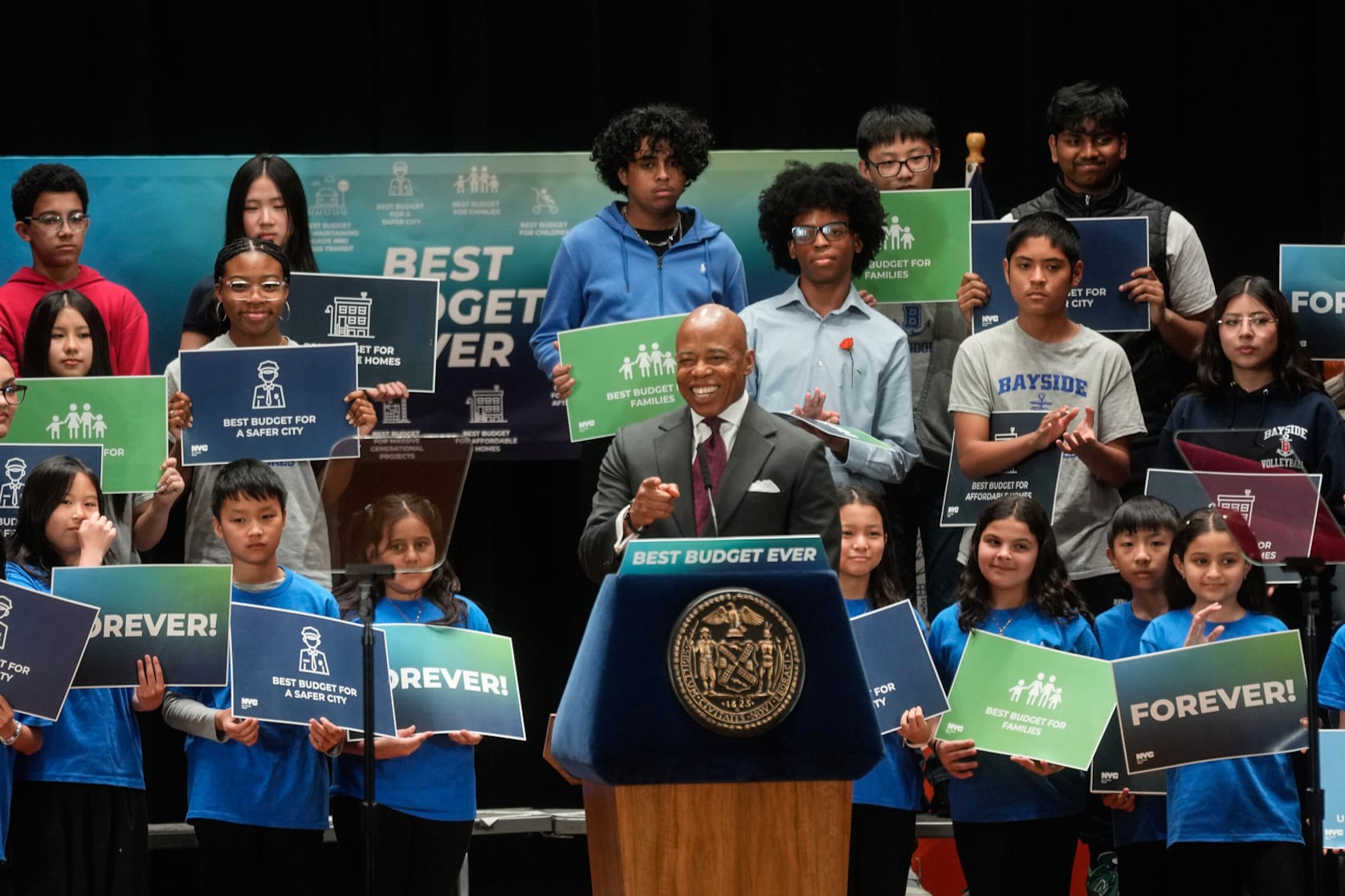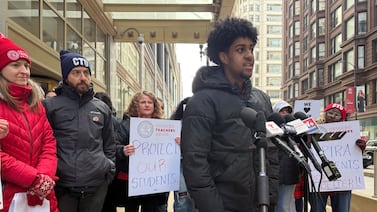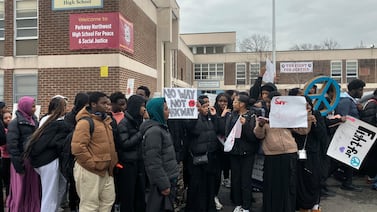Sign up for Chalkbeat New York’s free daily newsletter to get essential news about NYC’s public schools delivered to your inbox.
Education and youth were front and center in Mayor Eric Adams’ executive budget proposal Thursday as he touted plans to boost spending on child care and after-school programs.
Overall, Adams’ $115.1 billion executive budget proposes roughly $18.3 billion in city funding for the Education Department’s operating budget. That’s a roughly $670 million increase over the city’s education spending this fiscal year and $4.7 billion more than the city allocated in 2019, according to budget documents — increases that have kept the city’s education budget growing as federal aid diminished.
Several of the big ticket items, including reversing plans to let early childhood education funding expire and expanding investment in after-school programs, were already publicized in the days and weeks leading up to Thursday’s executive budget. Officials also committed to supporting several other education programs initially funded by one-time federal aid, which was set to expire this year, and promised funding to boost teacher hiring to shrink class sizes.
“No one will feel the impact more than our students because this is the best budget ever for families and young people,” Adams said during his budget address at Bayside High School in Queens, his alma mater.
Leaders of the City Council, who will negotiate with Adams in the coming months to adopt a final budget, had called for roughly $800 million in new education spending, and said Thursday’s announcement was a good start but only came after sustained pushback from the council and advocates. The final budget is due by the end of June.
“This is how the budget process should work, but it’s disappointing that it took three years for this administration to become tired of being entirely on the wrong side of doing right by New Yorkers,” said Council Speaker Adrienne Adams, a Queens Democrat who is running against Adams for mayor, and Finance Committee Chair Justin Brannan, a Brooklyn Democrat, in a joint statement.
Other city officials questioned whether Adams’ executive budget adequately took into account threats to the city’s budget and economy at the state and federal level.
“Eric Adams’ Executive Budget is from a fantasyland where Trump’s tariffs aren’t increasing the likelihood of an economic downturn and federal budget cuts aren’t looming,” said Comptroller Brad Lander, who is also running for mayor.
Office of Management and Budget director Jacques Jiha countered that the city’s reserves are at record levels and the city’s revenue projections are appropriately conservative.
After-school and child care get big investments
Several of the biggest spending proposals in the executive budget are efforts to shore up child care programs at a time when the city’s increasing unaffordability for families continues to be a major issue in the mayoral race.
Adams previously announced that he would reverse plans to let $112 million for the city’s free preschool program for 3-year-olds — and another $55 million for special education preschool seats — expire at the end of this fiscal year. Adams also announced Thursday that he will continue funding a program providing child care vouchers to undocumented families at $25 million a year, though the City Council has asked for more.
Earlier this week, Adams unveiled a plan he said will set the city on a path to universal after-school care. The plan proposes adding 5,000 K-5 after-school seats by this fall and another 15,000 by fall 2027. Officials said they will conduct a needs assessment in 2027 to see how many additional seats are needed to reach universality and re-bid contracts to improve payment rates for after-school providers. All told, the expansion will cost roughly $331 million a year by 2027, according to budget documents.
Federal and state threats loom
Despite the increase in education spending, budget officials acknowledged some looming threats and uncertainties at both the state and federal level.
A final state budget still hasn’t been officially released a month after the due date, though Gov. Kathy Hochul sketched the outlines of the deal earlier this week. That deal will include a statewide “bell-to-bell” school cellphone ban — a mandate budget officials said would cost the city about $25 million and “have a negative impact on the City’s financial plan.” Officials said the figure was based on Education Department estimates for purchasing cellphone pouches and other implementation costs. But officials did not yet know how much financial support to expect from the state.
Other state threats include a likely change to the school funding formula that would deliver the city roughly $350 million less than the current formula and a gaping budget shortfall for a popular child care voucher program. The state budget deal is unlikely to provide the funding necessary to keep families from losing access to the vouchers, but Adams is continuing to lobby the state to fill the gap, the New York Daily News reported.
Adams told reporters Thursday that the program is still facing a $300 million budget gap.
“No one is talking about the shortchanging of New York City on the state level,” he said.
Budget officials also acknowledged that threats from the Trump administration to cut off federal funding for school districts offering certain diversity, equity, and inclusion programs — currently on hold because of legal challenges — jeopardizes $2 billion for city schools that could result in “staffing reductions, increased class sizes, and cuts to after-school and support programs.”
Some relief for programs propped up by federal COVID dollars
Some education programs previously funded by one-time federal COVID relief money and on the chopping block for next year were given a reprieve in Thursday’s budget.
Those include Project Pivot, a priority of former Chancellor David Banks that gives schools money to work with community-based organizations to prevent violence, which will get $15 million in this and future budgets, according to budget documents.
Other programs getting long-term funding commitments include arts education, computer science courses, and a tutoring program.
A program to provide additional support for students experiencing mental health crises will get $5 million for next year but no commitment beyond that, according to advocates.
Increased teacher hiring budget comes into focus
Thursday’s budget announcement also provided the first clues about how much the city will spend on its upcoming teacher hiring blitz to comply with the state’s class size law.
Adams previously announced that schools will get additional money to hire some 3,700 extra teachers on top of normal hiring for next school year, but officials have been tight-lipped about how much that will cost and where the money is coming from.
According to budget documents released Thursday, the city will commit $150 million for extra teacher hiring this year and $200 million annually in future years. Budget officials said state funding will be “reflected later” but didn’t clarify how much they expect and whether that will be in addition to or instead of the city’s contribution. Union officials said the state money will be in addition to the city funds, but that the precise amount is still unclear.
Michael Elsen-Rooney is a reporter for Chalkbeat New York, covering NYC public schools. Contact Michael at melsen-rooney@chalkbeat.org.






